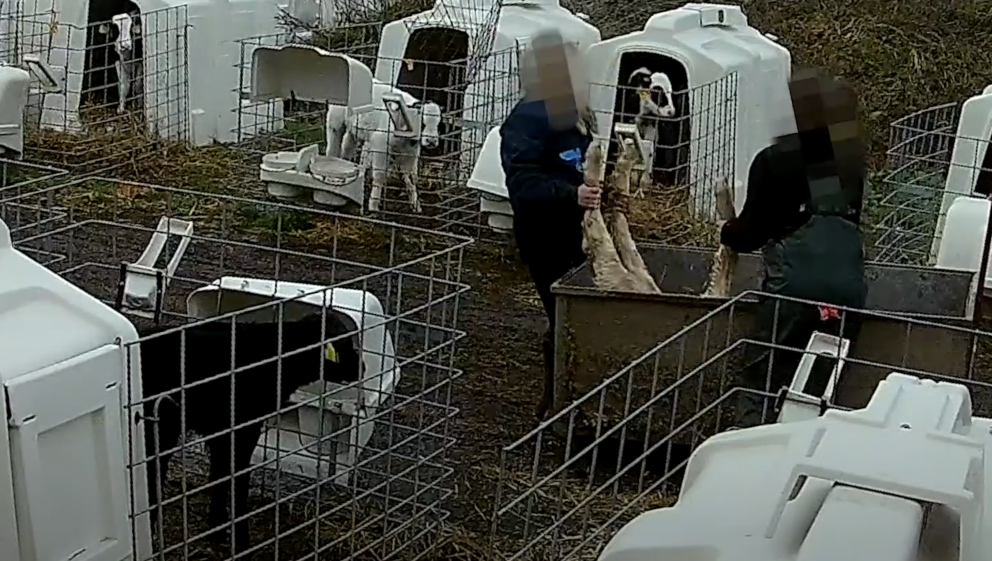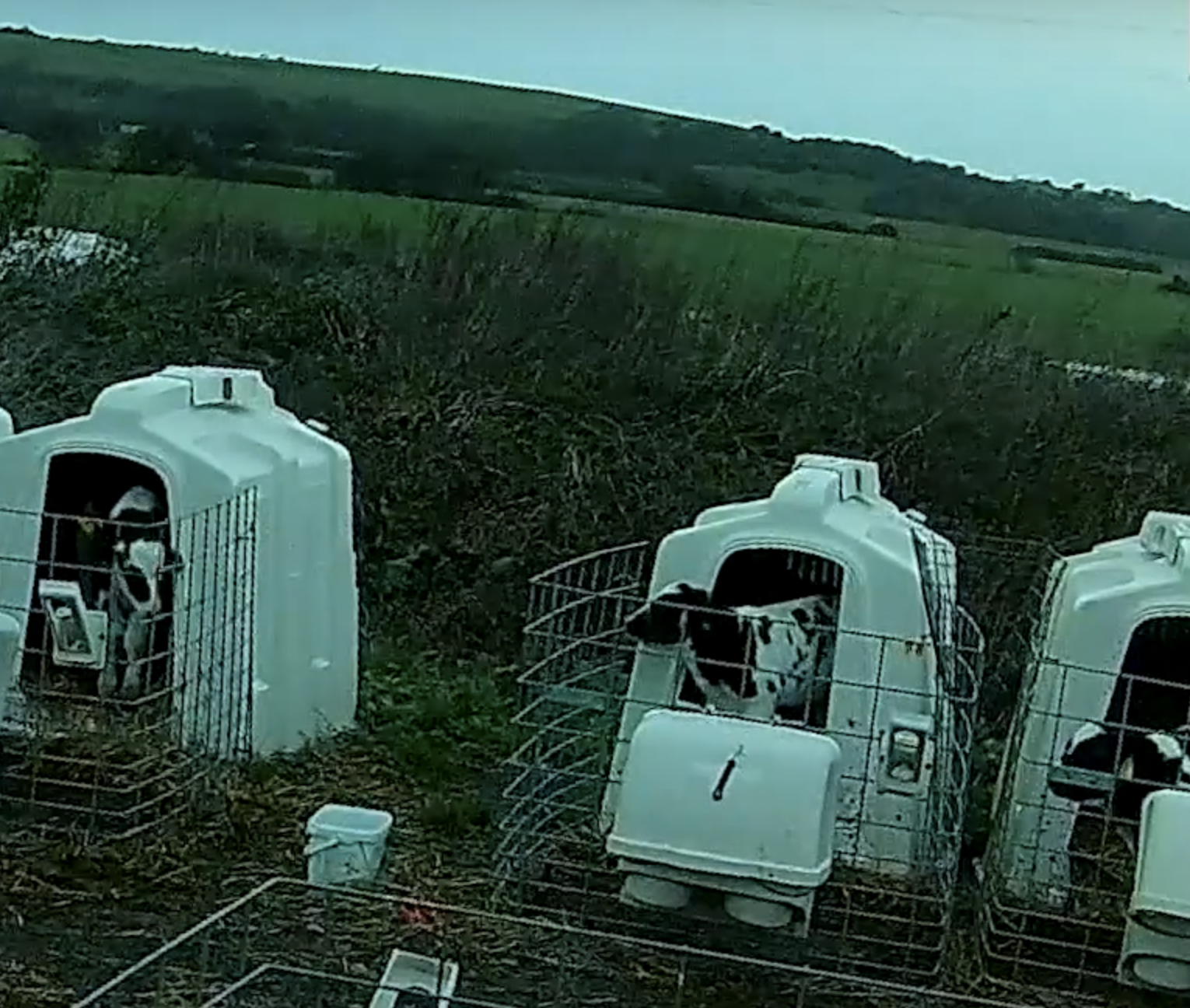Our latest investigation into individual calf hutches reveals the shocking emotional toll these set ups have on the wellbeing of calves.
Footage from our investigation was analysed by Dr. Helen Lambert, an internationally renowned animal welfare scientist and expert on animal sentience. Her PhD focussed upon identifying measures of positive and negative emotions in dairy cows.
Says Dr. Helen Lambert:
“Cows are emotional, complex, intelligent, and social beings with markedly different personalities. Research shows us that keeping calves in these small hutches with little room to move, and few opportunities to interact with one another can have long-lasting and permanent effects on their well-being.”
Dr. Lambert describes how cows are emotionally intelligent animals who enjoy being groomed and being with their families… just like all other animals.
The investigation of a dairy farm in Somerset shows scores of calf hutches, each confining a baby cow to a tiny space in all weathers, with just a plastic shell and some straw for thermal comfort.
Rearing calves in isolation, as Dr. Lambert says, has a negative impact on their mental well-being, as it restricts their ability to play and interact with other cows – especially their mothers – and an inability to feed when they please. These hutches are common and standard practice for the dairy industry for calves up to the age of around 8 weeks old.
As well as the negative impacts hutches have upon their mental well-being, Animal Aid documented a newly born baby calf being physically abused by farm workers whilst being transferred into a hutch. We have reported the incident to the relevant authorities.
The dairy industry is a brutal and cruel industry. You do not need to support this; by switching to dairy-free alternatives, you will be removing your support for this awful industry.



